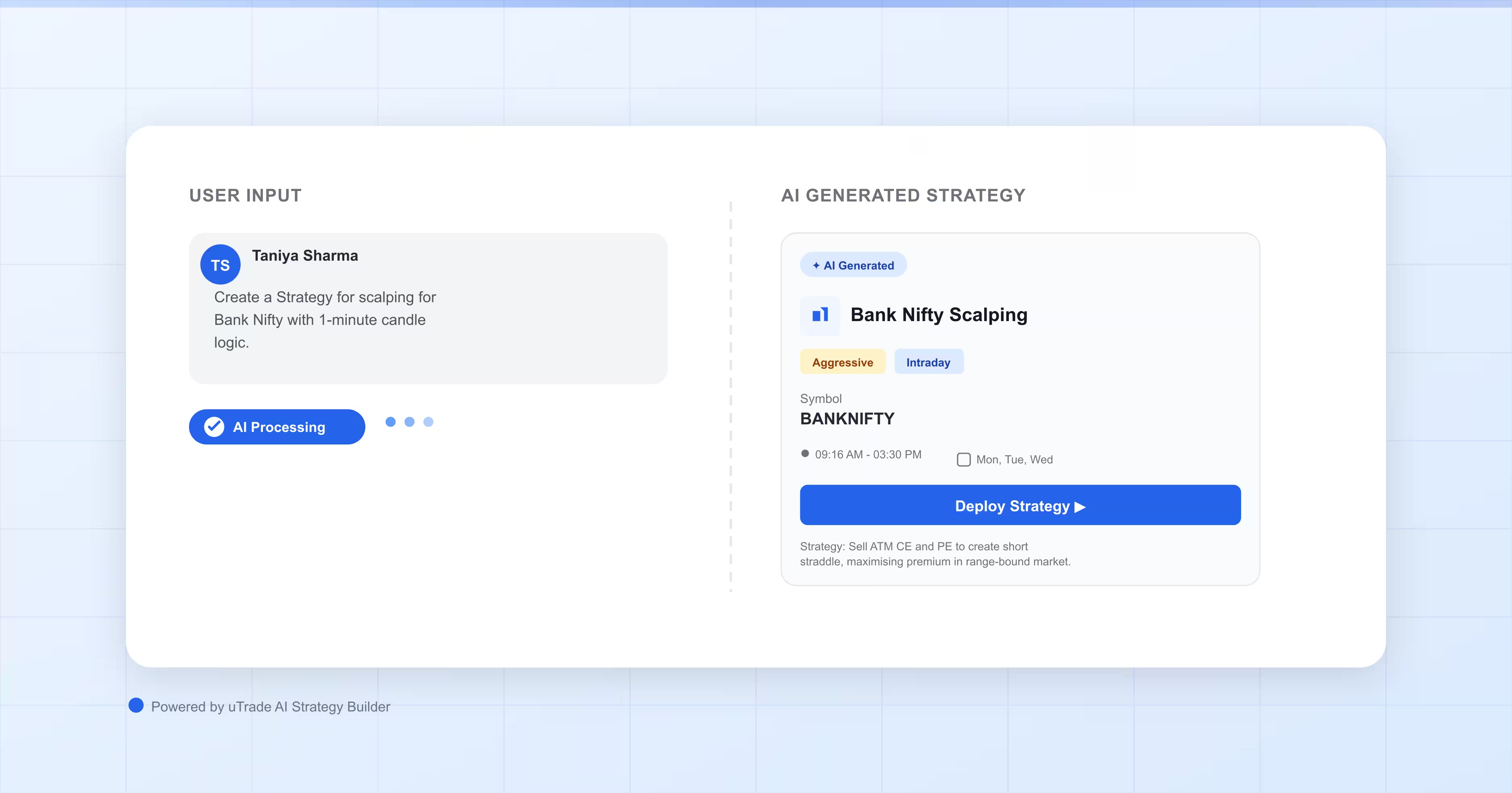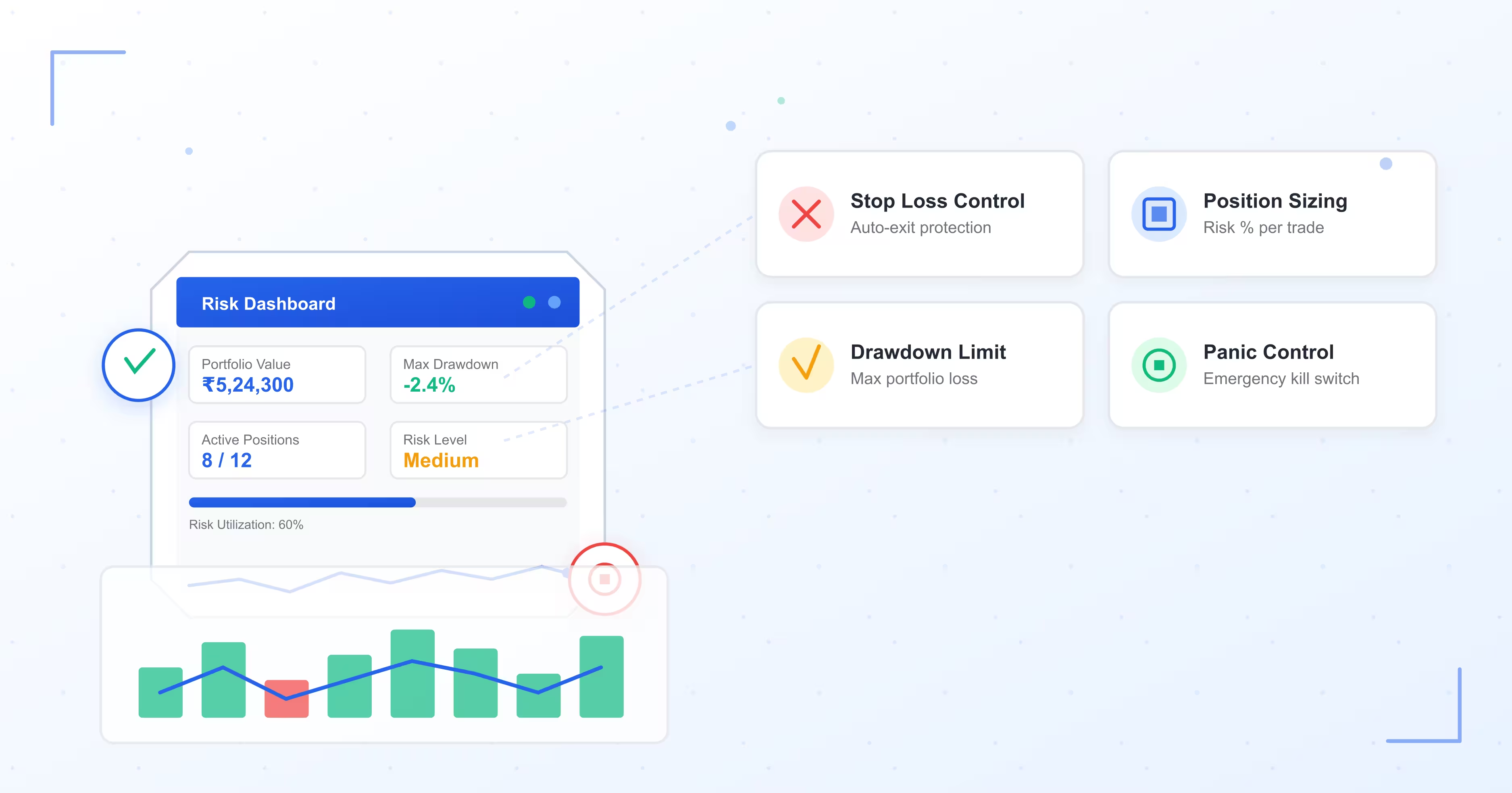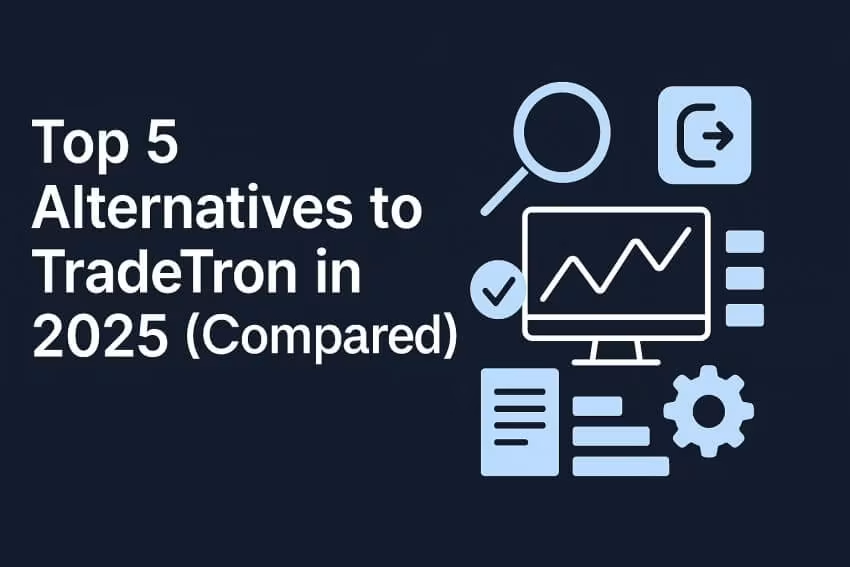In recent years, Indian traders have been increasingly turning to algo backtesting platforms to enhance their trading strategies and decision-making processes. This surge in adoption can be attributed to several key factors, reflecting the evolving landscape of the Indian financial markets and the growing sophistication of traders seeking a competitive edge. In this blog, we explore the reasons behind this trend.
Understanding Backtesting
Backtesting refers to the process of evaluating a trading strategy using historical market data to assess its performance over a specific period. By simulating trades based on past market conditions, traders can analyse the effectiveness of their strategies and identify potential strengths and weaknesses. This empirical approach provides valuable insights into the viability of a trading strategy before risking real capital in live markets.
Benefits Driving Adoption
- Risk Management and Strategy Refinement: Algo backtesting allows traders to quantify the risk associated with their strategies and fine-tune them accordingly. By testing different parameters and scenarios, traders can optimise their strategies to maximise returns while minimising potential losses.
- Enhanced Decision Making: Backtesting platforms enable traders to make data-driven decisions backed by empirical evidence. By analysing historical performance metrics, traders can gain a deeper understanding of market dynamics and improve their decision-making process.
- Time Efficiency: With the automation capabilities of modern backtesting platforms, traders can efficiently analyse vast amounts of historical data and generate actionable insights in a fraction of the time it would take manually. This efficiency enables traders to iterate and refine their strategies more quickly, staying ahead of rapidly changing market conditions.
- Reduced Emotional Bias: Emotions often cloud judgment in trading, leading to impulsive decisions and suboptimal outcomes. Backtesting provides a systematic approach to trading, helping traders mitigate emotional bias by relying on empirical data and objective analysis.
Technological Advancements Fuelling Adoption
The rapid advancement of technology has played a pivotal role in the widespread adoption of algo backtesting platforms among Indian traders. The availability of robust trading software and platforms equipped with sophisticated backtesting algorithmic trading tools has democratised access to quantitative analysis, empowering traders of all skill levels to leverage data-driven insights in their trading endeavours.
- Cloud-Based Solutions: Cloud computing has revolutionised the way traders conduct algo backtest, offering scalable and cost-effective solutions that eliminate the need for expensive infrastructure investments. Cloud-based backtesting platforms provide seamless access to historical data and computing resources, enabling traders to run complex simulations with ease.
- Machine Learning and Artificial Intelligence: Machine learning algorithms and artificial intelligence have further enhanced the capabilities of backtesting platforms, enabling advanced pattern recognition and predictive modelling. By leveraging AI-driven insights, traders can uncover hidden patterns in historical data and develop more robust trading strategies.
- Integration with Brokerage Platforms: Integration of algo trading platforms, like uTrade Algos, with brokerage platforms, has streamlined the algo trading backtesting process, allowing traders to seamlessly execute trades based on their backtested strategies. This integration facilitates a cohesive workflow, from strategy development and testing to live trading, enhancing efficiency and execution speed.
Implications for the Indian Trading Community
The rapid adoption of algo backtest platforms has significant implications for the Indian trading community, ushering in a new era of data-driven decision-making and quantitative analysis.
- Increased Competition and Innovation: As more traders embrace backtesting platforms in India, the level of competition in the Indian markets is expected to intensify. Traders equipped with sophisticated backtesting tools and strategies are better positioned to capitalise on market opportunities, driving innovation and raising the bar for performance standards.
- Shift Towards Quantitative Trading: The rise of backtesting platforms, like uTrade Algos, is fuelling a broader shift towards quantitative trading strategies in the Indian market. Traders are increasingly leveraging mathematical models, statistical analysis, and algorithmic trading techniques to gain a competitive edge and outperform traditional approaches.
- Demand for Financial Education and Training: The growing popularity of backtesting underscores the need for comprehensive financial education and training programs in India. As traders seek to enhance their quantitative analysis skills and harness the power of data-driven insights, there is a rising demand for educational resources and training courses tailored to the needs of modern traders.
Avoiding Common Pitfalls
- The Importance of Objectivity: Maintain objectivity to avoid selection bias and ensure reliable results. Algo trading backtesting should focus on learning and refining strategies rather than cherry-picking favourable outcomes.
- Understanding and Mitigating Look-Ahead Bias: Prevent look-ahead bias by ensuring the testing setup accurately reflects historical data. Avoid incorporating future information into the analysis to maintain the integrity of the backtesting process.
- Interpreting Outcomes and Metrics: Grasp the implications of backtesting results for your trading strategy. Utilise unbiased and diverse datasets to yield dependable insights tailored to the Indian market.
- Transitioning to Real-World Trading: Plan meticulously and manage risks when transitioning from backtesting to live trading in the Indian market. Ensure a smooth shift from theoretical testing to practical application.
In conclusion, the rapid adoption of backtesting platforms in India reflects a fundamental shift towards data-driven decision-making and quantitative analysis in the financial markets. By leveraging the benefits of backtesting algorithmic trading and embracing technological advancements, traders are poised to navigate the complexities of the Indian market with greater precision and confidence, driving innovation and shaping the future trading in India.












